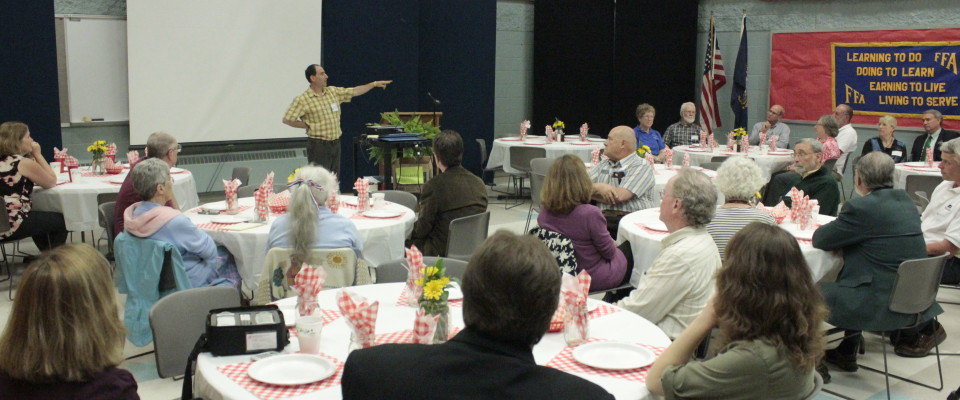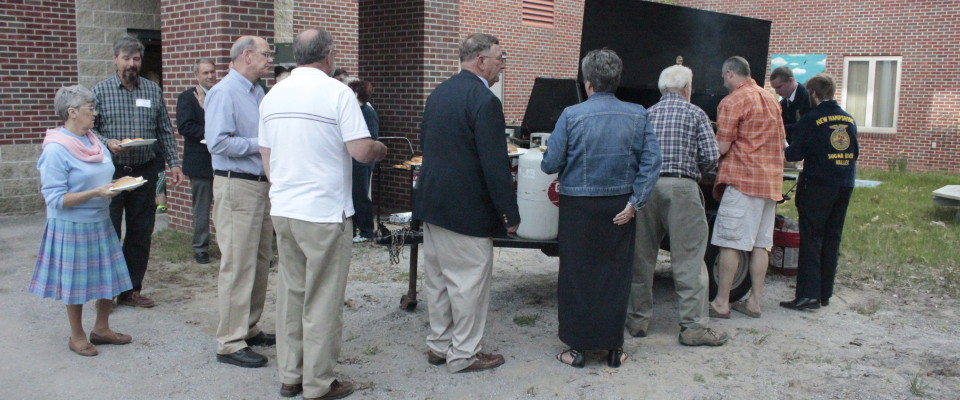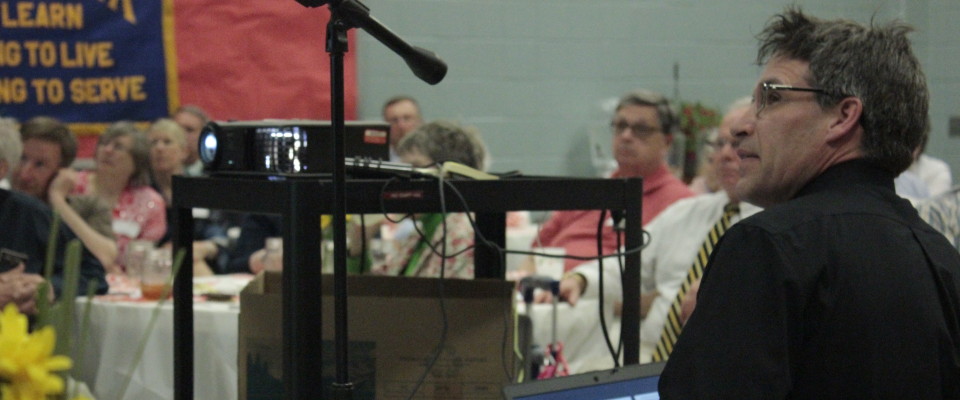NEWPORT, NH – May 11th 2015 – Sullivan County Farm Bureau hosted a dinner at the Sugar River Valley Regional Technical Center (SRVRTC) in Newport on May, 11th inviting members from the New Hampshire House of Representatives Environment and Agriculture Committee and Sullivan County as their honorable guests. The event was an occasion for Sullivan County Farm Bureau to open a dialogue with their representatives and other state legislators to discuss the important role agriculture continues to play in the county and across the state. New Hampshire Farm Bureau President, Jeff Holmes, and NHFBF Staff were also present taking the opportunity to share concerns and positions on current and future legislation.
The meeting was opened by Dr. Cynthia Gallagher, Superintendent of SAU 43, with a welcome to the facilities and a short pitch on what legislators can do to help students in her district. Her focus was on giving teachers and administrators local control over teaching styles.
Deb Stevens, Future Farmers of America (FFA) instructor, spoke briefly on the efforts of students from SRVRTC in their studies as well as in preparing the meal. Locally sourced burgers were provided by Keith and Susan Cutting of Cutting Farm in Springfield and cheese was donated by Taylor Brothers Farm in Meriden. Students from the FFA program worked hard to prepare the meal along with serving ice cream for dessert.
After the meal Seth Wilner, UNH Cooperative Extension Field Specialist for Sullivan County and NHFBF Fruits & Vegetable Sub-Committee Chair, began the presentations for the evening with an interactive slideshow demonstrating why agriculture matters in the state and specifically in Sullivan County. Attendees were handed out remotes with which they could guess the answer to multiple-choice questions such as, “What is the economic contribution of agriculture to NH’s economy when it’s impact on other supporting industries are factored?” (The answer is $1.5 Billion) Wilner’s presentation also touched on important aspects of Sullivan County’s agriculture industry and impact on the local community.
Next at the podium was Environment and Agriculture Committee Chair Bob Haefner. Haefner spoke about the growth in number of farms in New Hampshire which is unique compared to the declining numbers seen in other parts of the country. “New Hampshire’s Department of Agriculture has the smallest budget of any standalone department in the country,” Haefner stated. He then discussed his and others’ successful efforts in raising that budget. He also gave an overview of several bills the state legislature has visited recently including HB499, permitting farmers to sell certain farm raised animals directly to the public, and HB372, creating an exemption for certain private employees engaged in farming to eliminate the burden of worker’s compensation for part-time farm help.
Rob Johnson, NHFBF Policy Director, then gave a presentation covering animal and livestock policies in the state and how certain legislation is aimed at setting precedents in New Hampshire to take elsewhere. He shared an excerpt from a letter written by Beth Hodge, Cheshire County Farm Bureau President, explaining that although the impact of that legislation might not be felt here in New Hampshire, it could have consequences for the industry in general. He then moved into a discussion of biotechnology policy including HB660, requiring the labeling of GMO products, as well as a broader discussion of other topics related to GM technology. An open discussion followed the presentations where attendees engaged Johnson, Haefner, and Wilner on various topics relating to biotechnology in agriculture.



